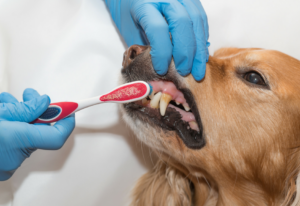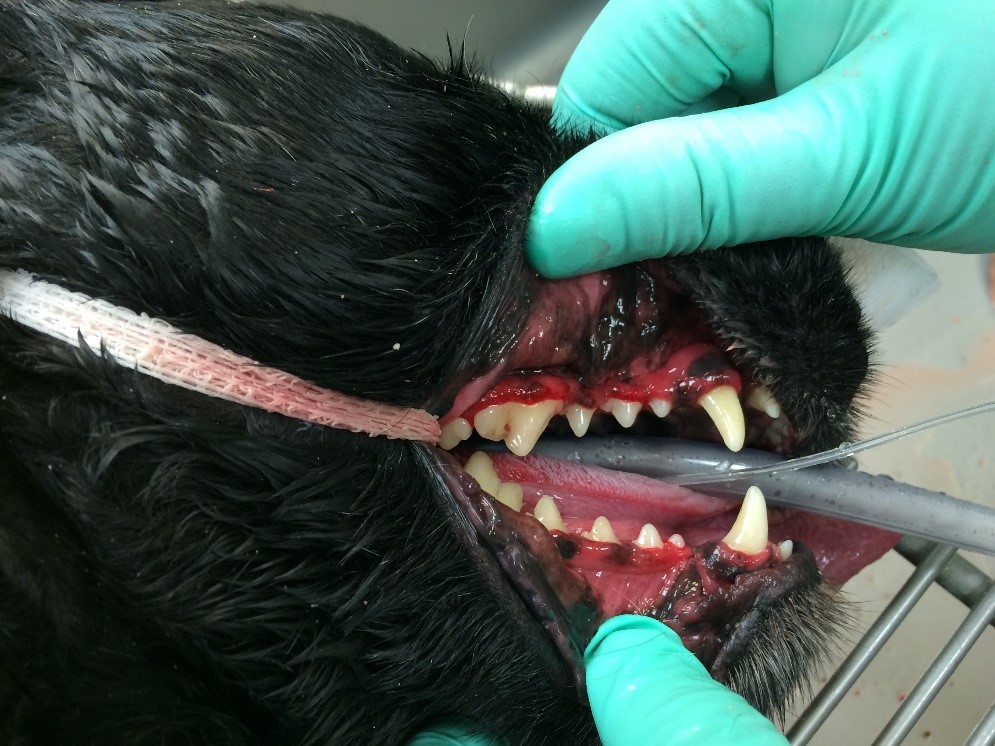Why does my pet need a dental procedure?
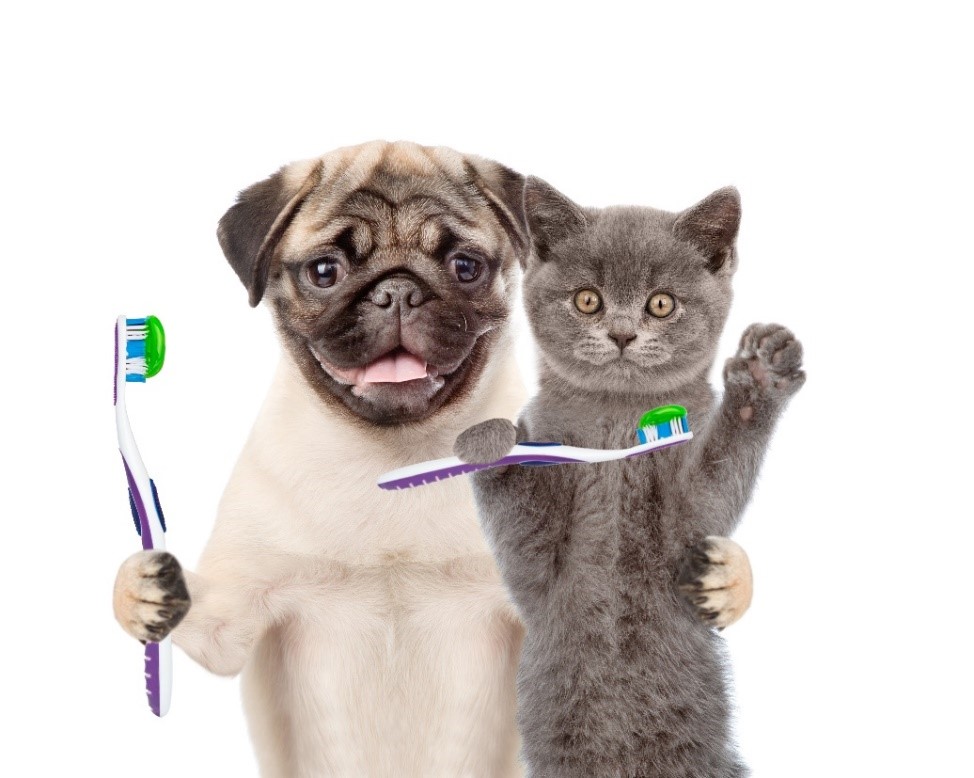
There are two main reasons why your dog or cat may need a dental procedure. Many pets simply need a routine dental cleaning to remove accumulated tartar that can trap bacteria at the gum line and result in gingivitis. If left untreated, this can eventually cause the gums to recede and the periodontal ligament to break down, allowing for loose teeth and pockets of pus, or abscesses, to form at the root.
The second reason that your pet may need a dental procedure would be more severe problems that require tooth extraction or oral surgery, even in the absence of tartar. This can include broken or devitalized teeth, retained baby teeth,etc.
Your pet’s teeth do have nerves and blood vessels inside them, which means that they can be a source of pain and serve as a way for infection to enter the bloodstream. In this way, dental disease can significantly affect your pet’s overall health and quality of life.
BEFORE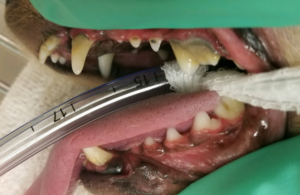 |
AFTER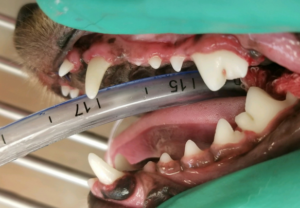 |
What are the signs of a dental problem?
Signs of dental disease can be subtle and slowly progressive, and therefore, are often overlooked by pet owners. Most pets with severe dental disease may continue to eat normally. While most pets will eat through pain, after the cleaning we often see significant improvement in their overall attitude and energy. Annual or biannual veterinary exams can identify and help prevent dental disease, but be sure to contact your vet in the meantime if you notice any of the following:
- bad breath
- bleeding, redness, or discharge from the gums
- loose, broken or discolored teeth
- slower eating/dropping food/decreased chewing or grooming
- swelling on the face, especially under the eyes or chin
- weight loss
- lumps inside the mouth
- excessive drooling
- lip licking
- blood -tinged saliva
- chattering
Why does it cost so much to have my pet’s teeth cleaned?
Dental procedures can be somewhat costly because pets must be put under anesthesia for even a simple cleaning, in order to prevent injury to themselves and staff members, and to be truly effective. Dental estimates vary and may include not just the standard ultrasonic scaling, polishing, and fluoride treatments, but also pre-anesthetic bloodwork, IV fluids, hospital stay, dental x-rays, tooth extractions, medications, etc. Scheduling regular dental cleanings and addressing any problems promptly will save you money in the long run, and keep your pet happier and healthier.
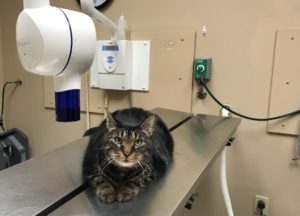
How often should I get my pet’s teeth cleaned?
It depends on the pet. Some pets may only need one or two cleanings in their lifetime. The average pet will need a cleaning every few years. Others, especially small/toy breed dogs, may need cleanings every 6-12 months. Your vet will let you know what interval is right for your pet’s individual needs.
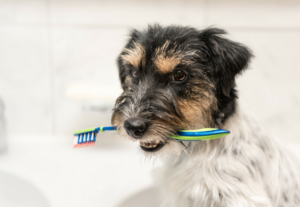
How old is too old for a dental procedure?
Geriatric animals are often the ones most in need of dental care, yet many owners worry that their pet is too old to undergo anesthesia. Again, there is no single answer to this question, as there is great variability among individuals based on their health status. The risk of anesthesia does increase slightly with age, but even pets as old as 15-16 years can safely have dental procedures if they are otherwise healthy. On the other hand, younger pets with significant health issues may not be good candidates for anesthesia. Your vet may recommend additional testing prior to anesthesia, and will take extra precautions to make the procedure as safe as possible.
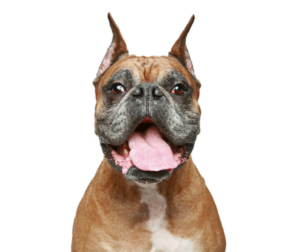
What can I do at home to prevent dental disease?
Daily brushing with a toothbrush and paste made for pets can definitely help remove plaque before it turns into actual tartar, which is nearly impossible to remove at home. Introducing brushing at a young age and establishing a regular routine may help reduce anxiety associated with dental care. Feeding dry kibble and dental chews are preferable to soft food and treats. Your vet may even recommend a prescription dental diet that encourages chewing. Finally, there are various commercially available mouth rinses and water additives that can cut down on the number of bacteria in your pet’s mouth, but be sure to consult your vet before adding any substances to your pet’s food or water.
